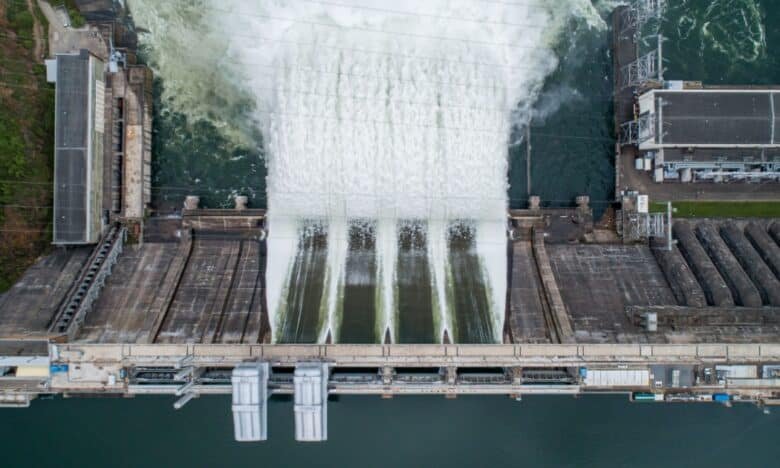
Key Insights into Navigating the Future during the 6th Paderanga Varela Memorial Lecture on Energy Security and Climate Change
- November 3, 2024
On October 24, 2024, The sixth Paderanga Varela Memorial Lecture (PVML) was held at the Discovery Primea in Makati City. The PVML is an annual event that aims to engage and educator stakeholders on key issues facing the Philippines. Its 2024 iteration is themed The Energy Challenge, highlighting the urgent demands for reliable and affordable energy. The lecture, titled “Striking a Balance: Energy Security in a Low Carbon World, notes the crucial intersection of energy security and climate change from the perspective of a developing country.
With this, it is essential to transition to renewable energy sources such as solar, wind, and geothermal, at the same time build the foundation for their sustainability through substantial investments, technological advancements, and robust policy support.
The lecture seeks to reframe our perspective on decarbonization and energy transition through insights from its speakers: Keynote speaker Deputy Executive Director of the Climate Change Commission Asec. Romell Antonio O. Cuenca, Lee Kuan Yew School of Public Policy Associate Professor Eduardo Araral, Department of Energy Usec. Rowena Cristina Guevara, Department of Environment and Natural Resources Usec. Jonas Leones, and Aboitiz Power Corporation CIO Joseph Lacson. The speakers gave updates on the country’s position in the worldwide clean energy shift, and discussed how it can maximize its natural resources while balancing decarbonization efforts.
Key points included the race to increase renewable energy (RE) capacity in line with the country’s goal to reach a 35% RE mix in 2030 and over 50% by 2050, the economic benefits of electrification considering the forecasts of increased household income with increased access to electricity in line with the National Total Electrification Roadmap aim for 100% electrification by 2028, requiring ample investment, and the necessity of multiple stakeholders and a collaborative attitude to successfully implement policies and promote energy efficiency.
The meeting ended with a call to action for partnerships and innovation for a sustainable energy future. Here are the key themes discussed in detail:
Balancing Energy Security and Climate Goals
We must balance our climate commitments with providing reliable energy access by maintaining the availability of traditional energy sources like coal as we taper off of them with the gradual growth of renewable energy sources and storage. Asec. Cuenca notes that “The decisions we make today regarding energy security will significantly influence our nation’s future economically, ecologically, and socially”.
Sustainable Energy Initiatives:
Asec. Cuenca continues by stating “Our National Climate Change Action Plan places a strong emphasis on sustainable energy as a key thematic priority”. Through initiatives that promote energy efficiency and renewable energy, the Climate Change Commission instigates climate resilience.
National Commitments and Targets:
As part of its Nationally Determined Contributions (NDC) under the Paris agreement, the Philippines commits to a 75% reduction in greenhouse gases by 2030 along with the Philippine Energy Plan.
A Collaborative Approach
Cuenca moved to the lecture’s thrust, stating, “It is important that we strike a balance, one that ensures reliable energy for our growing economy while committing to our climate goals,” emphasizing the need for multiple stakeholders for a successful effort.
Public Awareness and Education
Cuenca called for a culture of sustainability by sharing information with each other and integrating our knowledge of climate change into our daily lives. Public awareness through education and programs for those with the least access to knowledge is crucial to reap the benefits of energy efficiency and renewable energy. He said, “Let us create a partnership that works for our nation and ensures a brighter, more sustainable future for all Filipinos”.
Investment and Innovation
In the lecture’s closing remarks, former Finance Secretary Margarita Tevez added that “the energy transition is not merely about infrastructure and economics, but about people, especially the most vulnerable among us who are disproportionately impacted by the effects of climate change”, as she called for investments from the private sector to fund renewable energy technologies and infrastructure.
A Just Transition
In Tevez’s last words, she stresses the moral obligation in creating a just transition for those most vulnerable to climate change, saying “Ensuring a just transition is not only a moral imperative but a necessity if we are to build a resilient, sustainable, and inclusive future”.
The lecture intends to reinforce the accountability of all Filipinos in our shared energy transition journey, from stakeholders collaborating on a stable roadmap aligned with the country’s economic growth and environmental sustainability. Though this path is wrought with hurdles and uncertainties, its success dependent on unity and cooperation between the government, private sector, scientists, educators and consumers will lead to the country’s long-term resilience and prosperity, in the energy sector and beyond.



